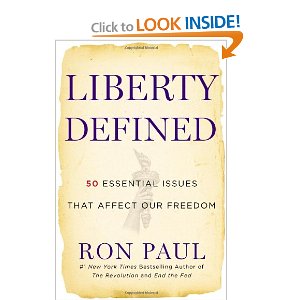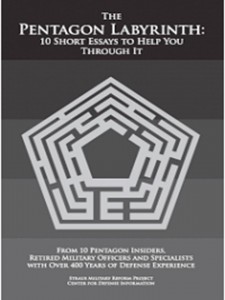
Ron Paul
![]() Six Stars for Ron Paul's Consistent Constitution–50 one liners, May 10, 2011
Six Stars for Ron Paul's Consistent Constitution–50 one liners, May 10, 2011
I have read and reviewed earlier books by Ron Paul, such as The Revolution: A Manifesto and A Foreign Policy of Freedom: Peace, Commerce, and Honest Friendship. This book moves into a higher class (only 10% of the books I read and review get 6 Stars, see all my reviews in 98 categories at Phi Beta Iota the Public Intelligence Blog). I decided in this instance, thinking of Ron Paul as a viable Presidential candidate for the first time, to deconstruct the book down to 50 one liners. I offer these as a short form of the book, not a substitute for the real deal, but intended to help inspire more people to either buy the book, or absorb this free summary as we all try to break free of the corrupt two-party tyranny that fronts for a neo-fascist state.
Bottom line: liberty is a human condition diminished by a leviathan state.
Below: one line summary of each of the 50 chapters. See also the review by A. Maheshwari that I liked so much I cross-posted it to Phi Beta Iota for others to appreciate.
Continue reading “Review: Liberty Defined–50 Essential Issues That Affect Our Freedom”






